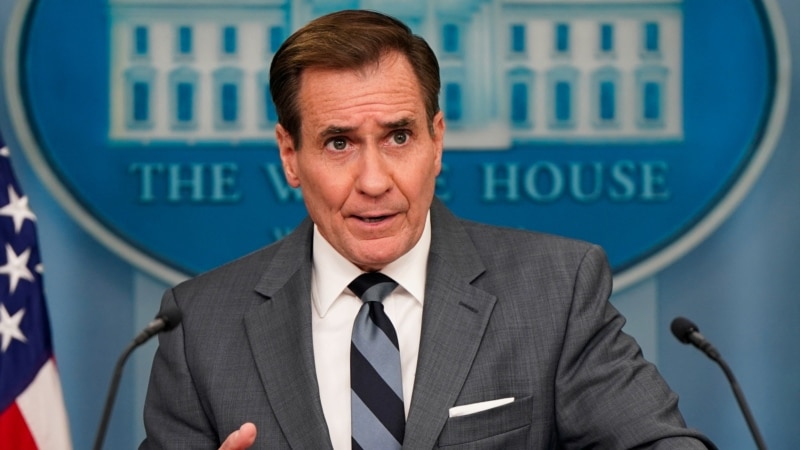
Duty to warn. It is the obligation that the United States says it takes upon itself if the intelligence community is able to identify an impending threat to a particular country.
The U.S. acted on this duty just two weeks before the deadly attack near Moscow claimed by Islamic State. U.S. officials had warned Russia that extremists had imminent plans for such an attack, but the Kremlin brushed off the warning as mere blackmail and efforts to destabilize Russian society. John Kirby, White House national security communications adviser, spoke to VOA about the terrorist attack.
This interview has been edited for clarity and brevity.
VOA: First of all, let’s jump into fresh accusations coming from Russia today. Russia’s FSB [intelligence] chief accused the U.K., the U.S. and Ukraine of being behind the Moscow attack on the concert hall. What’s your response to that?
Kirby: Nonsense.
VOA: The United States has exercised its duty to warn the Russian counterparts of an incoming threat. Why was it important for the American side to warn Russians given that they are waging the war against Ukraine and they turned into the world pariah?
Kirby: Because it was going to be innocent Russian people that were going to fall victim and in fact, did fall victim and we take our duty to warn very, very seriously. We have all kinds of problems with the way Mr. [Vladimir] Putin is leading and governing, if you want to call it that, and we certainly have significant concerns about the continued reckless and violent attacks on Ukrainian people and Ukrainian infrastructure.
But we don’t have a beef with the Russian people. And we had information that they were going to put Russian people, innocent Russians at risk from a terrorist threat. So you bet we informed Russian authorities as appropriate as we would do for any country.
VOA: I’m wondering what their response looked like. Was it a thank you note? Or did they say, “It’s nonsense, leave it to yourself?”
Kirby: I won’t characterize what the other side did with the information that we provided. We provided useful, we believe, valuable information about what we thought was an imminent terrorist attack. We also warned Americans about staying away from public places like concert halls. So we were very direct with our Russian counterparts appropriately to make sure that they had as much useful information as possible. What they did with it, or didn’t do with it, they’d have to speak to.
VOA: But can you confirm they received it?
Kirby: We know that they received the information and that they understood the information. Now what they did with it, again, is for them to speak to.
VOA: Who is responsible for this attack according to American intelligence? Is it ISIS? What was the motive behind the attack?
Kirby: ISIS is responsible for this attack.
VOA: ISIS-K?
Kirby: ISIS is responsible for this attack.
VOA: Do you know the motive here?
Kirby: ISIS claimed responsibility themselves. They all have the goals. Again, I’m not going to get into too much into intelligence matters. ISIS is responsible for this attack.
VOA: Moving on to Ukraine. What are the chances of Congress voting for the supplemental [budget to assist Ukraine] once legislators return from their break?
Kirby: Well, we hope that they will. I can’t predict what the House will do. It is going to be up to Speaker [Mike] Johnson and this is a moment for him to show some leadership. We know that if you were to put that on the floor it would get voted on resoundingly.
Ukraine and Ukrainian battlefield commanders would have the weapons and the capabilities that they need to better defend themselves, particularly in the East there in the Donbas where Russian forces continue to try to make progress pushing west out of Avdiivka. So it’s past time for us to be able to provide additional security assistance to Ukraine, it’s past time for that supplemental to get passed. And so we strongly urge Speaker Johnson to put it before a vote and let’s get moving.
VOA: Speaker Johnson, as reported by The Hill, may contemplate the possibility of providing Ukraine with a loan or another form of lend-lease arrangement to supply them with weapons, with the expectation of repayment. Would this administration be open to this option as an alternative to the supplemental?
Kirby: Our focus is on getting that supplemental passed. And as I’ve said before, and the speaker knows this, if he puts it on the floor, it’ll get approved. It has the votes. That’s the best way to support Ukraine.
